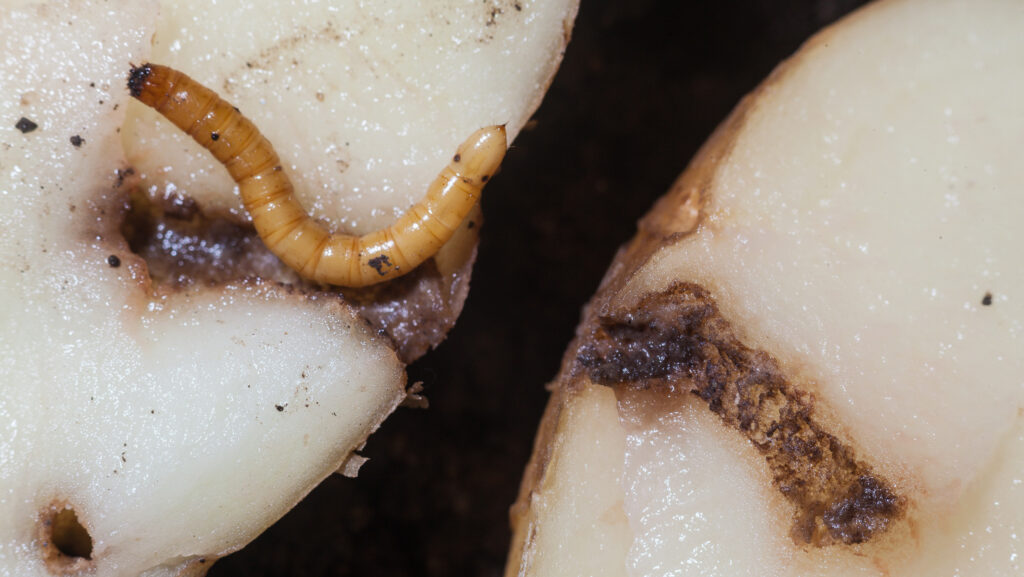New research project needs farmers’ wireworms
 © Blackthorn Arable
© Blackthorn Arable Growers are being asked to send live wireworms to Rothamsted Research, where researchers are developing tools to help farmers accurately assess wireworm soil numbers.
There are limited chemical treatments for wireworm and they are becoming an increasing problem in a range of cereal and root-vegetable crops.
See also: Changes arable farmers are planning after tough season
Crop rotation is seen as the best means of control, but how do farmers know if a soil has high damaging levels of wireworm numbers prior to planting?
Jozsef Vuts, Gareth Thomas, and Anusha Mohan-Kumar, from the Chemical Ecology group at Rothamsted Research, believe root odours that attract wireworms can be used to estimate soil wireworm numbers.
Their aim is to produce wireworm traps using root odours that mimic the smell of their food.
Jozsef says: “The idea is that farmers would place them in fields prior to planting to assess wireworm numbers.
“They can then use the information to assess the risk of damage and decide whether to plant the crop or not”.
The researchers have already identified a blend of odours produced by the roots of cereal crops that have been shown to lure wireworm.
They are now looking to reduce the number of compounds in the blend, to make it suitable for industrial use, without losing its effect.
To help in their work, the researchers are asking farmers to send them live wireworms, to use in lab and greenhouse experiments.
They are also interested in field observations from growers, such as any plants they have noticed wireworms don’t eat.
Wireworms, from the UK only, should be placed in a plastic tube or container, with some soil or moist sand, and sent by post to:
Anusha Mohan-Kumar/Gareth Thomas/Jozsef Vuts, Rothamsted Stores, Protecting Crops and the Environment Department, Rothamsted Research, Harpenden AL5 2JQ.
What are wireworms?
Wireworms are the larvae of click beetles and can live in the soil for up to five years before pupating.
They damage crops such as cereal and root vegetable crops. This leads to yield loss, reduced marketability and even death.
